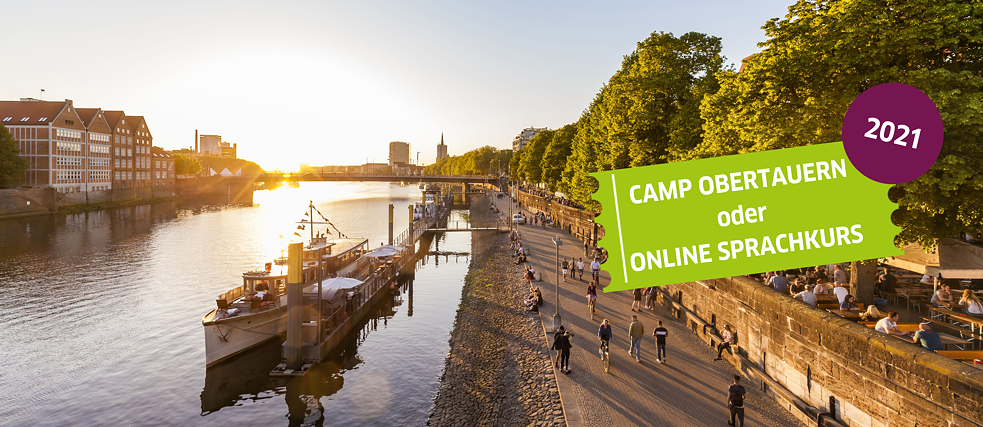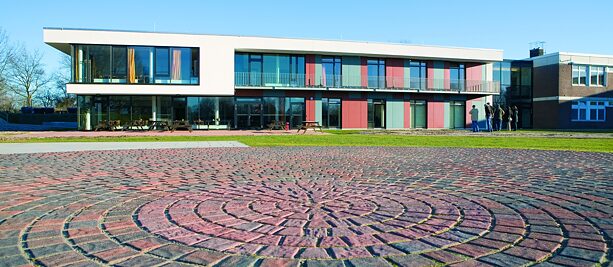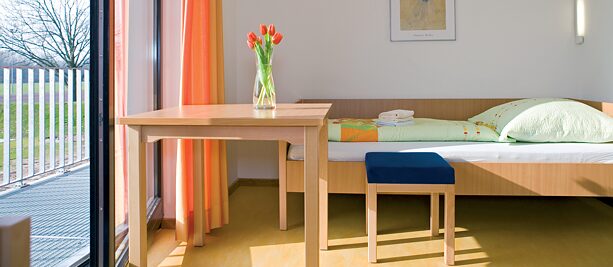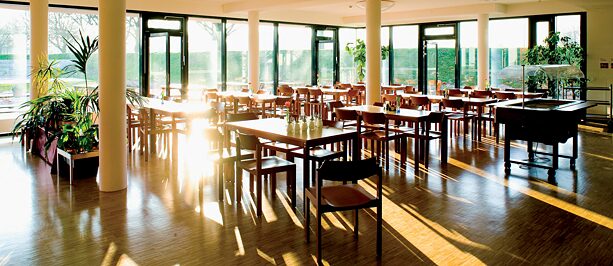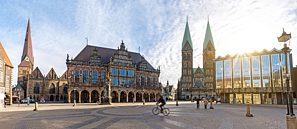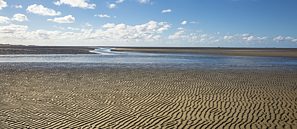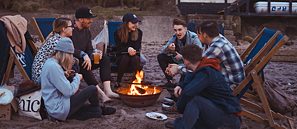German language summer programs in Bremen
Youth camps
1Courses/exams exempt from VAT according to § 4 No. 21 a) bb) UStG; exception: German Training Online includes 7% VAT for customers resident in Germany
Learn German in the Hanseatic City of Bremen
The Goethe-Institut youth language camp in Bremen offers the topical focus "Studying and University Life". We call it Uni Camp, and it is aimed at young people between 15 and 17, who are thinking about attending a university. The topic is highlighted with three extra events such as excursions and workshops, but will also be examined during the regular lessons.Each week, 28 hours of German lessons are planned. On the weekends, the camp students can apply their new German language skills on excursions and during the exploration of Bremen. Our accommodation is located on the Stadtwerder, a peninsula in the Weser River in Bremen. It is a quiet part of town, surrounded by greenery and two arms of the river, but we are just 2 kilometers from the city center of Bremen. Our students from all over the world live together in 2- or 3-bed rooms with shower and bathroom.
Three meals are served daily to our students, mainly with products from the region. We always offer our camp participants the choice between a meat and vegetarian dish. Drinks and refreshments are available during the breaks and in the afternoon. After a day full of German lessons, the course participants can relax on the riverside of the Weser, which is just a few minutes walking distance away, or take advantage of the many sports and leisure activities offered on site.
Life in the Hanseatic League: Historic Bremen
The exploration of their host city Bremen, which can look back on more than one thousand years of history, is always extremely exciting for our course participants from all over the world. During a city tour, the students of our German course will get to know the most beautiful sights of Bremen, which includes a UNESCO World Heritage Site, the town hall and the Roland on the market square in front of it. The magnificent town hall, dating back to the early 15th century, is a testimony to the self-confidence of the Hanseatic city and its citizens. The Roland is an eleven-meter high figure of a knight with the imperial coat of arms on his shield, the largest preserved medieval statue in Germany. At one corner of the town hall, there is also a monument of the Bremen Town Musicians.In the Schnoor quarter, our students will experience true medieval atmosphere in the narrow cobbled alleys between small artificer’s houses. Bremerhaven also belongs to Bremen, where we visit the Emigration House, a museum about the migration of the Germans in the 19th century. A day trip will take us to Hamburg, Germany's "gate to the world", another excursion with our course participants will go to the Wadden Sea at the North Sea for a wonderful muddy mudflat walk.
Highlights
Further information
“We manage to get along with each other on the courses in a peaceful, happy and tolerant manner – so you think to yourself: it's not that difficult and it must be possible for the rest of the world to manage!”
Hannah, 23, supervisor on the youth camps
